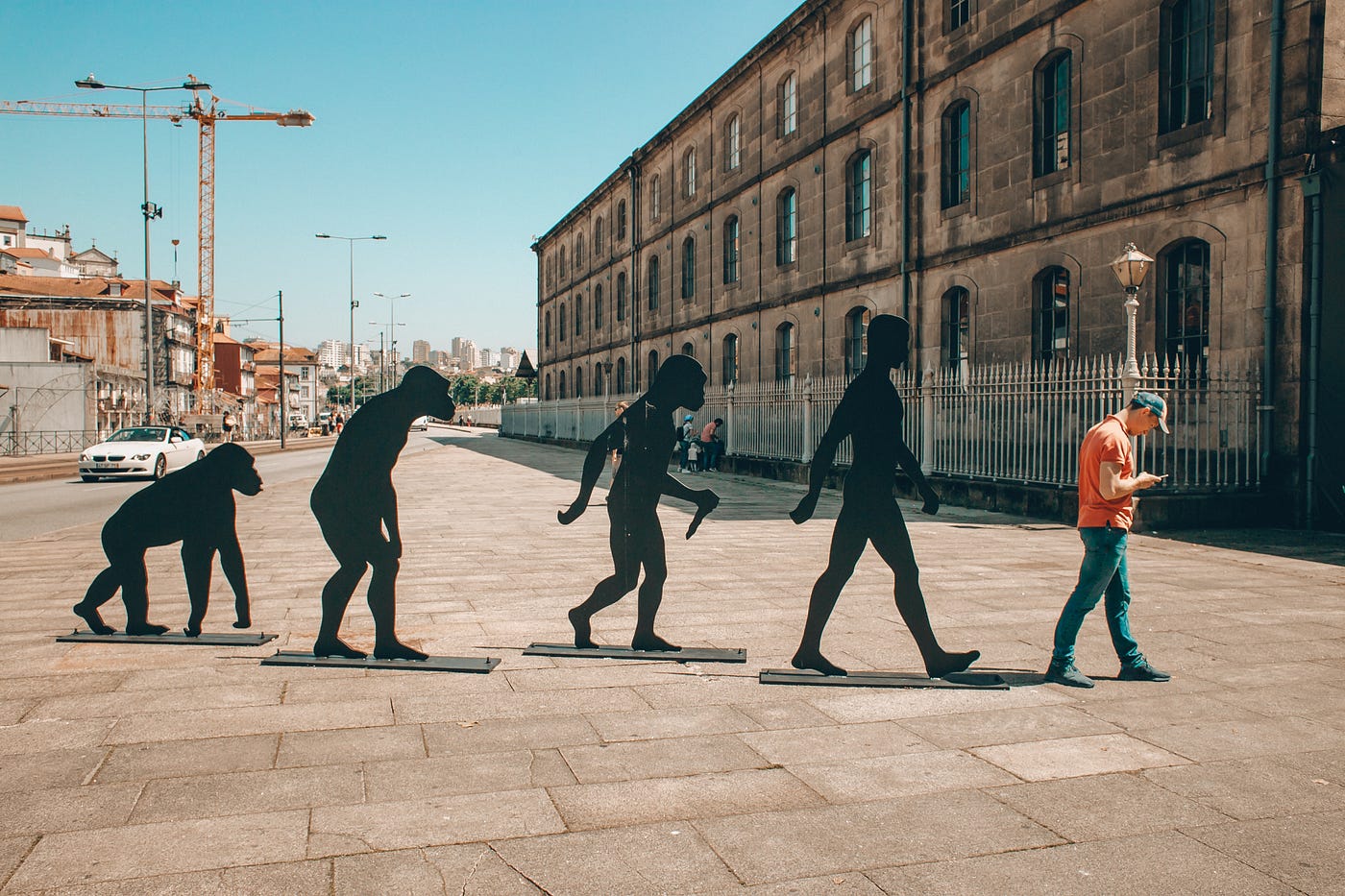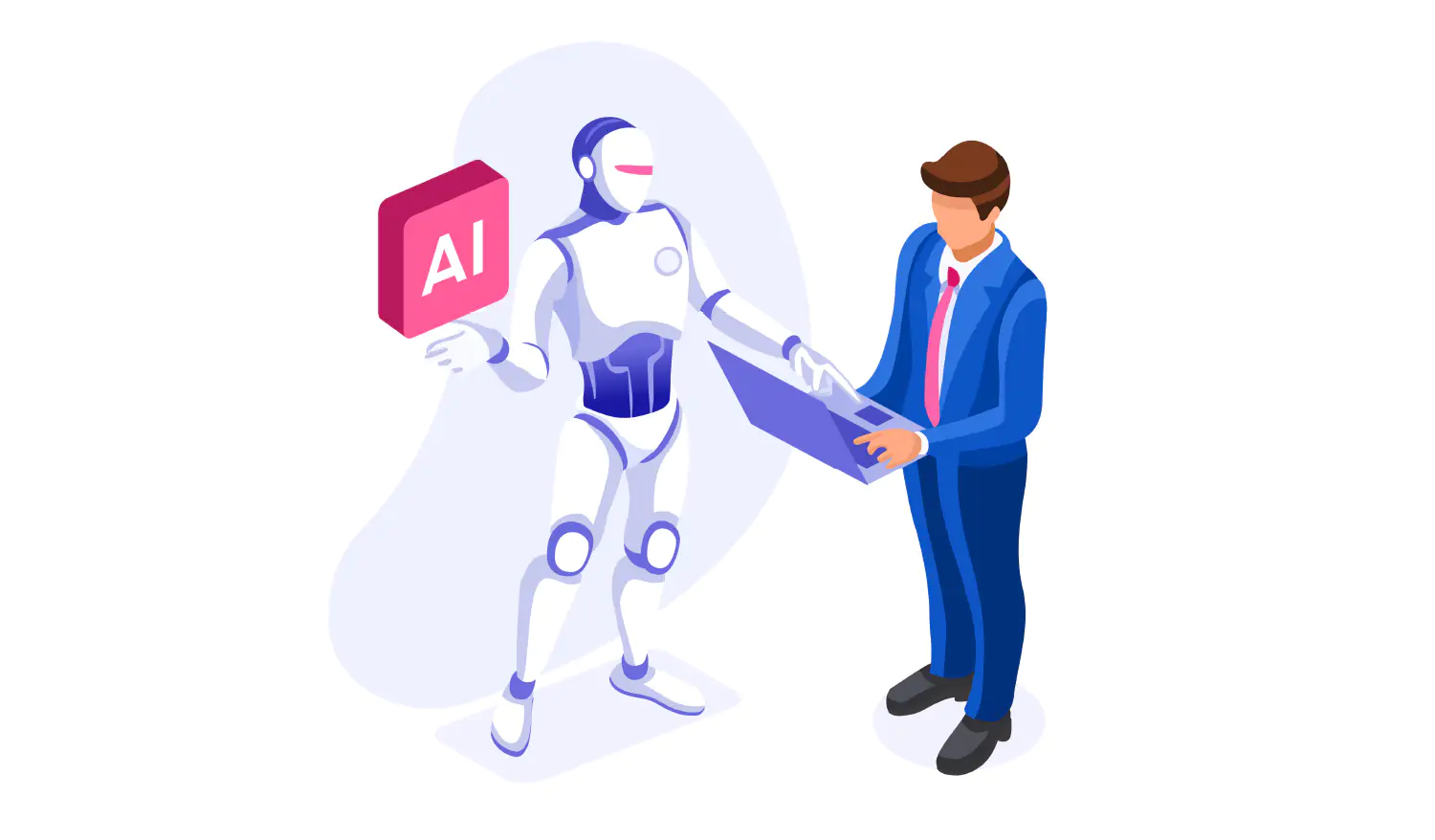The value, the driver of evolution
The coaching market is heating up with B2B coaching marketplace startups. Companies like BetterUp are supported by British royalty and valued at $1.7B. My claim is that this is only stage 1, and automation will replace marketplaces.
Many coaches are afraid of their jobs being taken away by AI. Some find this scenario laughable, arguing coaching can only be done by humans. I believe the truth is somewhere in-between.
In 10 years 95% of business/life coaching sessions happening worldwide will be sessions with an AI coach. Also, the market will be 20 times larger than it is today because AI will make the service affordable to almost anyone.
Predictions of the future are bound to be flawed. Treat the following one from me as food for thought rather than a prescription for action. Yet this is what experience working on the Chatbot Coach tells me.
Let’s unpack this.
The value, the driver of evolution
The coaching market is heating up with B2B coaching marketplace startups. Companies like BetterUp are supported by British royalty and valued at $1.7B. My claim is that this is only stage 1, and automation will replace marketplaces.
First, let’s clarify why this is happening. What is the value that businesses are chasing here? Perhaps we could approach this question by doing the following thought experiment. Below are the things that an AI coach will be able to provide you with in the near future. Would you say “no” if the service was almost free and worked seamlessly?
AI coach will:
- Provide various tools and frameworks from psychology, behavioral sciences, business, and philosophy to help you develop and reach personal and professional excellence.
- Give feedback on cognitive and behavioral patterns, and perspectives to consider when making new decisions. Successful people like Warren Buffet and Ray Dalio reflect on both their values and mental models when making decisions, AI coaching could simplify the process and provide these tools to the masses.
- Help to keep you accountable for the process.
- Make you feel heard, supported, and safe when venturing outside your comfort zone.
An AI coach might initially not be able to perform with the same efficiency as a professional human coach with a PhD in psychology. However, it can serve billions of people at the same time while costing almost nothing.
It also has some advantages. One is having a vast database of exercises and frameworks, the other is having flawless memory of its user. Yet a third advantage is the lack of “noise” in decision making which Daniel Kahneman called an even bigger plague for decision making than bias in his 2021 book.
Want a practical example? Think of the following questions:
- What are my values? How should they guide my work today?
- Is this belief of mine really true? Where is the evidence?
- Would this decision matter in 5 years?
- What would my best self do in this situation?
- How can this conflict deepen the relationship between me and my community?
- Am I simplifying this too much? What could I have missed?
- Is this action coming from who I really want to become or how I want to appear?
This is not a snapshot of random questions in Plato’s Academy of ancient Athens. In 2030, this could be an everyday discussion a person is having with her smartphone while commuting to work.
While this may sound like utopian fiction, people can’t forever satisfy themselves with mere consumption of games, videos, and so on. As Ray Kurzweil famously said, we will move from “experience economy” to “meaning economy” when we reach the 2030s. And as a large canon of philosophers has stated throughout history in various cultures, few things provide meaning to the same extent as continuous self-transcendence.
How the evolution of markets happens

The coaching market will adapt, grow and develop after the AI reaches a sufficient stage of development and the market is mature enough for the service to reach a critical mass. Whether it will take 2, 5, or 7 years is unknown, but everything I know makes me believe that before 2030 having AI as a coach will be regarded as normal as sharing personal thoughts and pictures to the whole world on social media feels right now. Remember, it wasn’t like this in the early 2010s. We got used to it, fast. The first rule of futures science: never project too much of the current ways to the future after any large-scale technological change.
“We shape our tools, and our tools shape us.” — Marshall McLuhan.
Here is an example of the market evolution from history. Until the late 15th century, only a microscopic fraction of Europe was literate, and the ones who were owned only a few books. Books were considered to be something sacred, they focused mainly on biblical topics and could only be made by monks. They were handwritten and extremely expensive.
After the printing press was invented, the production cost of books plummeted. Books got cheaper, so people started having more books, and eventually, literacy became more popular and even reached the lower classes. First the bourgeoisie, and eventually also peasants.
As the market started growing and production costs were lower, the diversity in content became less of a risk. We got poetry, plays, horror, stories for children, and eventually even cartoons. Without the printing press, we wouldn’t have Hemingway, Woolf, Murakami, or Joyce. We would only have Jeff Bezos and Elon Musk reading the “divine” content approved by omniscient monks.
A somewhat similar event could occur through AI-based coaching if every person on Earth (likely starting from the workforce) gets well-versed in the skills of self-reflection and directing their behavior. The printing press disrupted our noosphere of information, and in combination with the national education systems, the large majority of people in almost every corner of the planet became literate. Internet and social media took us another step forward, as we got the means to scan through the existing information freely. Now, with the abundance of information, it is time to share the means of filtering out the true and relevant information. And that can happen through AI-based coaching.
AI coaching is the means, not the method, of finishing the quest the philosophers of ancient Athens started. The quest is making the world a place where people live examined lives, know themselves and reach excellence as humans. In other words, we can finally start flourishing as a species. As our medieval monks evolved into modern literary geniuses, so can the current innovative coaches become something more developed, and specialised in the future, as AI coaches can take care of providing the basics of self- and professional development to all.
Test, don’t trust
The scalability and cost-effectiveness of AI coaching are unrivaled. This will enable more people to try coaching tools. AI will take over a huge part of the coaching industry, infiltrating into people’s everyday lives through their smartphones and computers.
I often get asked whether coaching should be done by a human or machine. The problem with the question of which one it should be is that it kills creativity. It isn’t about what coaching should be, it is about what coaching could be.
“When I’m working on a problem, I never think about beauty. I think only how to solve the problem. But when I have finished, if the solution is not beautiful, I know it is a wrong solution.” — Buckminster Fuller
Finally, what gives me the credibility to make such sweeping claims? While being a Medium writer by night, I am the CEO of the startup Panda Training by day. We make coaching 100 times cheaper through chatbot technology, to drive organizational change. We also collect data to be able to give your organization feedback on systemic bottlenecks and blind spots. Trusted by companies like SAP, Universal Pictures, and KONE.




